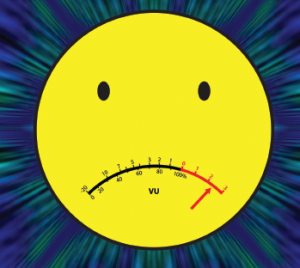
© Stephen Wood / Science Source
Anil Lalwani, MD, professor and vice chair for research in the department of otolaryngology–head and neck surgery at Columbia University College of Physicians and Surgeons in New York City and the current president of the American Auditory Society (AAS), introduced a session focused on important new research and knowledge in hearing loss. He noted that the research presented in the session would point to a need to refine how to test for hearing loss.
Explore This Issue
November 2017Hearing Decline Begins Much Earlier than Commonly Thought
Sumitrajit Dhar, PhD, chair of the department of communication sciences and disorders at Northwestern University in Evanston, Ill., began his talk by explaining, “We know that at some point in our lifetime, auditory function starts to decline.” He added that the real question is when the decline begins, and one barrier to answering this question has been the lack of sound sources that deliver clean but adequately intense signals to evaluate the parts of the inner ear that are responsible for capturing the highest audible frequencies.
Another barrier to evaluating the cochlear base in routine clinical or research protocols has been the inability to accurately calibrate sound levels at high frequencies.
Dr. Dhar’s research team has developed instrumentation that meets these challenges. Using this instrumentation, they analyzed data from 1,148 individuals, all of whom had thresholds of <20 decibels hearing level (dB HL) in the standard test frequencies and did not report history of noise exposure, ear surgery, or ototoxic drugs. In other words, he said, “These individuals are as a pure a data set as we can lay our hands on.” Moreover, he added that it is “not a trivial dataset but, rather, a pretty substantial dataset.” The group included both males and females who ranged from 10 to 60 years old. The researchers provided equivalent stimulus levels for threshold and distortion product otoacoustic emissions (DPOAE) measures, with the signals calibrated to account for ear canal volume/geometry. They tested thresholds between 0.125 and 20 kHz and analyzed the data by placing the results in five-year age bins.
The investigators evaluated hearing loss against a reference of the average thresholds of 10- to 14-year-olds. In doing so, they found that hearing loss begins at a much earlier age than is commonly thought—between the ages of 25 and 29 years. Moreover, the biggest decline in hearing was observed between 25 and 45 years of age. He emphasized that this hearing loss was discernable as low as 6 kHz.